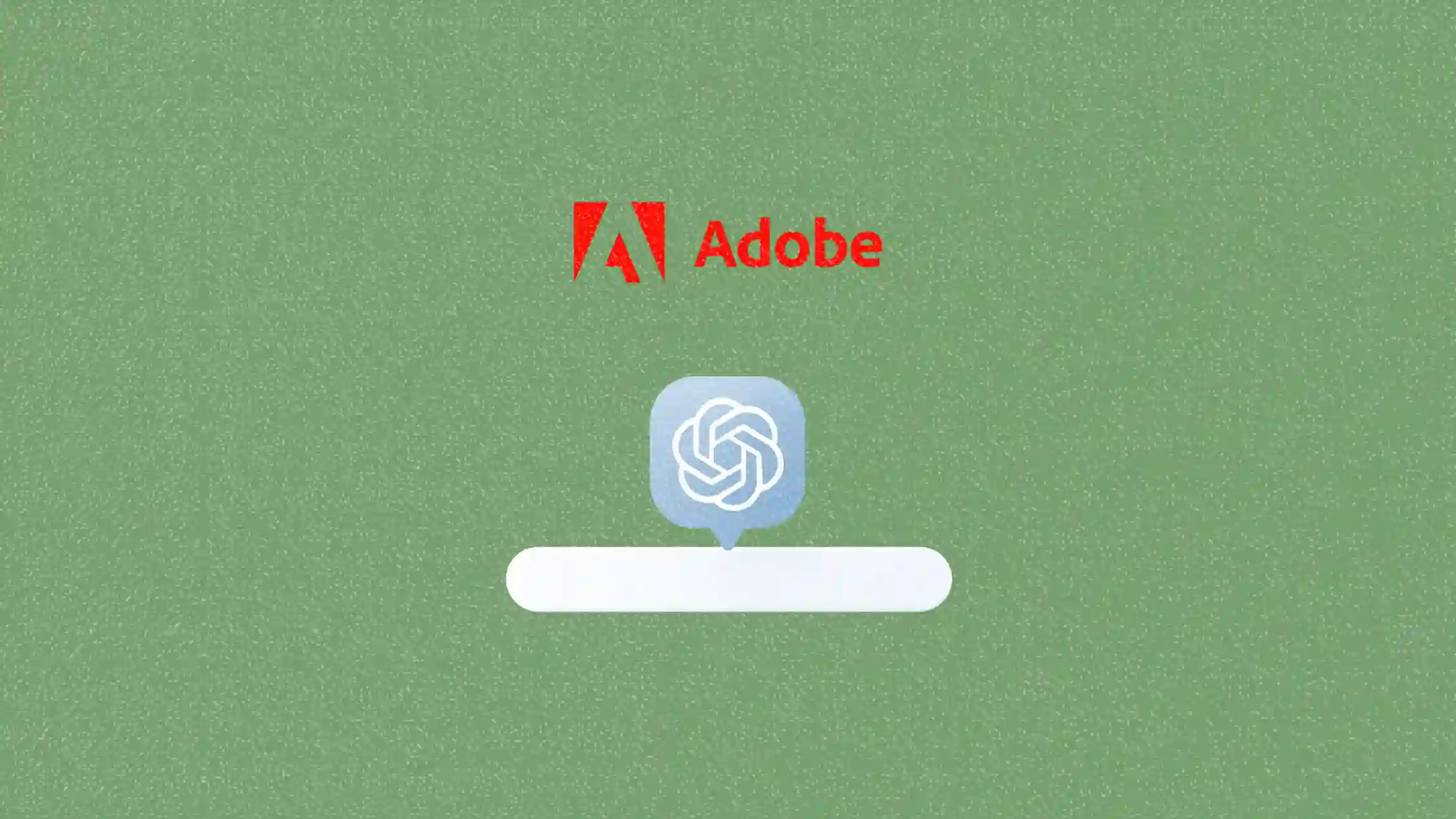AI search is real and Adobe’s data shows how fast it’s growing
Adobe’s latest survey confirms the emerging trend where AI search tools are changing how we discover products and brands

Marketers pay attention.
First it was AI-powered content. Now, AI-powered search is gaining ground. A new Adobe Express survey reveals that 77% of Americans are using ChatGPT as a search engine and 24% go to it before they even try Google.
These numbers confirm what many marketers have already sensed: users are shifting away from traditional search engines, and AI tools are quickly becoming the new front door to discovery.
This article explores the shift toward conversational AI tools like ChatGPT, what that means for brand visibility, and how marketers can adjust their strategies to stay visible in an AI-first world. With younger users leading the way and trust in AI-generated answers rising, ignoring this trend could mean missing the next big discovery channel.
Short on time?
Here’s a table of contents for quick access:
- The rise of conversational search
- What consumers want from AI search
- How marketers and small businesses are adapting
- What marketers should know

The rise of conversational search
According to Adobe’s May 2025 survey of 1,000 U.S. respondents, including 800 consumers and 200 marketers or small business owners, ChatGPT is no longer just a novelty. It is now a search engine.
The survey highlights key demographic breakdowns that show widespread usage across age groups:
- Gen X: 80%
- Gen Z: 77%
- Millennials: 75%
- Baby Boomers: 74%
Notably, 28% of Gen Z now begin their searches on ChatGPT and this is a significant statistic because it is more than any other group. Users say they turn to the AI tool for everything from everyday questions (55%) to brainstorming help (53%), and even financial advice (21%) or product discovery (13%).
If ChatGPT is becoming the new Google for a growing slice of users, especially among digital natives, brands need to rethink where and how they show up.
What consumers want from AI search
People aren’t just curious about AI, they are comfortable with it. Adobe’s survey suggests users are drawn to ChatGPT for how quickly and clearly it explains things.
Top reasons people prefer ChatGPT for search:
- 54% like how it summarizes complex topics
- 33% value the fewer clicks needed compared to Google
- 81% prefer it for creative or open-ended questions
- 77% say its results feel more personalized
These preferences point to a critical shift: users are trading traditional list-based search results for direct, conversational answers. And those answers often include product suggestions. In fact, 36% of respondents discovered a new brand through ChatGPT—47% of Gen Z and 37% of Gen X users reported this happening.
Trust is also shifting. 3 in 10 people now say they trust ChatGPT answers more than Google’s. That number is only likely to grow as AI tools evolve.
How marketers and small businesses are adapting
Marketers aren’t waiting for the AI trend to plateau. Nearly half (47%) of small business owners and marketers already use ChatGPT for marketing or promotional content like product descriptions, blog posts, or social media copy. This is because 76% of marketers and business owners think it is important for their brand to appear in ChatGPT answers.
Two-thirds say they plan to increase their focus on AI visibility in 2025. In other words, they want to appear in ChatGPT’s responses just as they would in Google search results.
This trend marks a pivotal moment in digital strategy: if ChatGPT becomes the first touchpoint for discovery, then AI search optimization could be as important as SEO ever was.
What marketers should know
If your audience is shifting its search behavior, your strategy needs to evolve with it. Here’s how marketers can stay relevant in the age of AI-assisted search:
1. Optimize for AI visibility and not just SEO
AI tools like ChatGPT surface content differently than search engines. They prioritize clarity, context, and usefulness. Focus on producing content that directly answers user intent, especially queries that are open-ended, educational, or creative.
2. Invest in content formats that AI tools favor
According to the survey, marketers report that data-driven content (57%) and how-to guides (51%) perform best in AI searches. These formats are more likely to get picked up and surfaced in conversational answers.
3. Prioritize clarity, context, and utility
Forget keyword stuffing. AI models favor content that’s concise, well-structured, and informative. Focus on content that solves real problems and offers clear takeaways.
4. Track how your brand shows up in AI tools
Just like you monitor SEO rankings, start testing ChatGPT prompts to see if and how your brand appears. Consider publishing content that answers common customer questions or summarizes complex industry topics because these are often the queries users bring to AI.
5. Rethink your discovery funnel
If younger users are skipping Google and going straight to ChatGPT, your brand's first impression might come from an AI-generated answer. Think of AI tools as a new type of content distribution and not just search, but also inspiration and decision-making.
The way people find information online is changing really fast. As ChatGPT and other conversational AI tools gain mainstream traction, brands that rely on traditional SEO alone risk losing visibility where it matters most.
Smart marketers are already adapting. They're producing content optimized for AI search, investing in educational formats, and tracking how their brand shows up in conversations and not just rankings. The shift to AI-powered discovery is happening. Whether your brand rides the wave or gets left behind depends on how fast you adapt.




